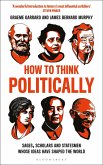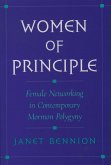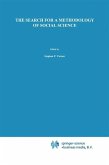Essay from the year 2014 in the subject Philosophy - Miscellaneous, grade: 1,3, University of Stirling (Philosophy), course: From Plato to Existentialism, language: English, abstract: In the following essay I am going to position myself towards the Harm Principle as outlined in John Stuart Mill's On Liberty. I will present problematic aspects of the Harm Principle, give an answer to whether I agree with it and embed it into a larger context of ethics. In this I will briefly compare Mill's Harm Principe and Kant's Categorical Imperative in terms of social and individual value. To begin with, an attempt to give a satisfying answer to the question at hand asks for some solid definitions. Mill in his work On Liberty is concerned with "civil, or social liberty: the nature and limits of the power which can be legitimately exercised by society over the individual." (Mill, 1859) Since liberty as a basic principle is of great importance in On Liberty as well as in what is to follow, I will clarify my notion of it by aid of the Oxford Dictionaries. Liberty is "the state of being free within society from oppressive restriction by authority on one's behaviour or political views" ('Liberty', Oxford Dictionaries.) I accept this definition in that I mean this very grasp on liberty when I make use of the term in the following passages. Moreover, the term 'harm' needs to be narrowed down to and I would love to include a definition by Mill but On Liberty, unfortunately, does not provide us with a firm definition of what is to be classified as harm. He does however give a clear version of what not to consider harm. Subsequently I need to give my definition of 'harm' for the sake of giving my view on the Harm Principle. I consider harm to be either the violation of the individual's will or the infliction of physical as well as psychological injury. Moreover, I agree with Mill's opinion on what shall not be perceived as harm, namely the "success in an overcrowded profession or in a competitive examination". (Mill, 1859) This picks out the passive infliction of harm. However even when two individuals' freewill cannot be accounted for without violating the other, "society admits no right, either legal or moral, in the disappointed competitors to immunity from this kind of suffering" according to Mill. (1859:164) The society should however interfere when "force", "fraud or treachery" where invoked against one of the individuals by the other party. (Mill, 1859). I agree with this notion of the 'minor harm' and can finally discuss the Harm Principle itself.
Dieser Download kann aus rechtlichen Gründen nur mit Rechnungsadresse in A, B, BG, CY, CZ, D, DK, EW, E, FIN, F, GR, HR, H, IRL, I, LT, L, LR, M, NL, PL, P, R, S, SLO, SK ausgeliefert werden.









